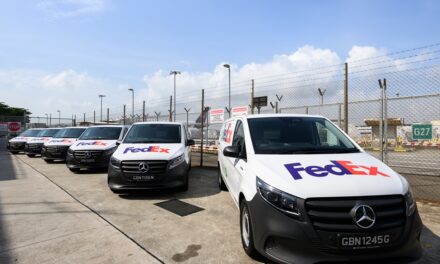
UPS gets A+ on transparency, but misses 2011 sustainability goals
UPS avoided driving 85m miles in 2011, saving 8.4m gallons of fuel and 83,000 tonnes of carbon emissions, according to its latest Sustainability Report. But the company missed key targets for the year on aircraft transport, employee satisfaction and its charitable giving.
Overall, UPS saw its emissions decline by 3.5% compared to 2010, while package volumes grew by 1.8%.
The company used advanced route-planning technology to cut its driving distances around the world, along with telematics technology that saved more than 98m minutes of engine idling time – and another 653,000 gallons of fuel.
The report from UPS also said the company’s US facilities managed to reduce their use of energy.
UPS has now reduced its transport emissions by 7.8% compared to 2007, and its US small package transport emissions by 5.4% compared to the same year.
Goals
The Corporate Sustainability Report revealed that UPS met only four of the seven key sustainability goals it set itself for 2011 – employee safety, vehicle accident frequency, aircraft emissions and full-time employee retention.
The company said nevertheless, it made progress on goals related to jet fuel use, employee satisfaction and charitable contributions. Charitable contributions in 2011 amounted to $93.5m, shy of its $103.5m goal, employee satisfaction levels were at 68% compared to a 70% goal.
UPS was particularly proud of the 2011 Sustainability Report itself, highlighting the fact that with it, the company was one of only 10 US corporations registered with the Global Reporting Initiative to achieve an A+ rating for its “superior transparency”.
For the first time, UPS disclosed information including its direct and indirect impacts.
The company which made a $53.1bn revenue in 2011 paid $3bn in taxes, $2bn in dividends, and $27.6bn in employee compensation and benefits.
Chairman and CEO Scott Davis said: “One of the guiding principles to UPS’s sustainability strategy is our commitment to transparency. We are disclosing more information than ever.”












